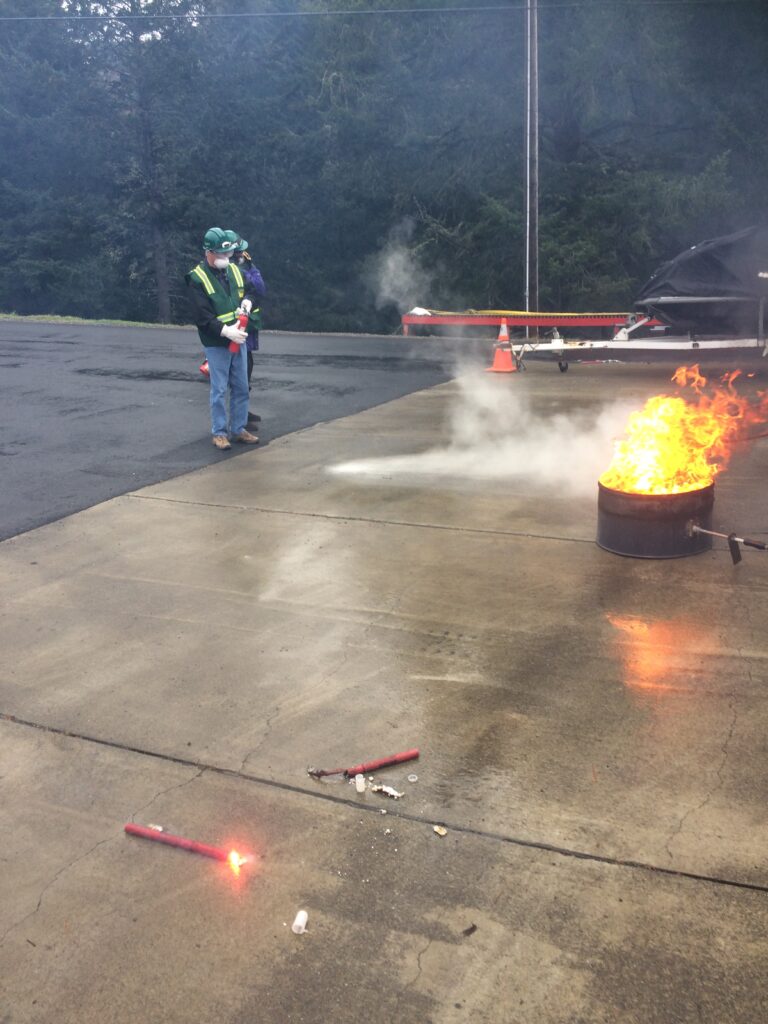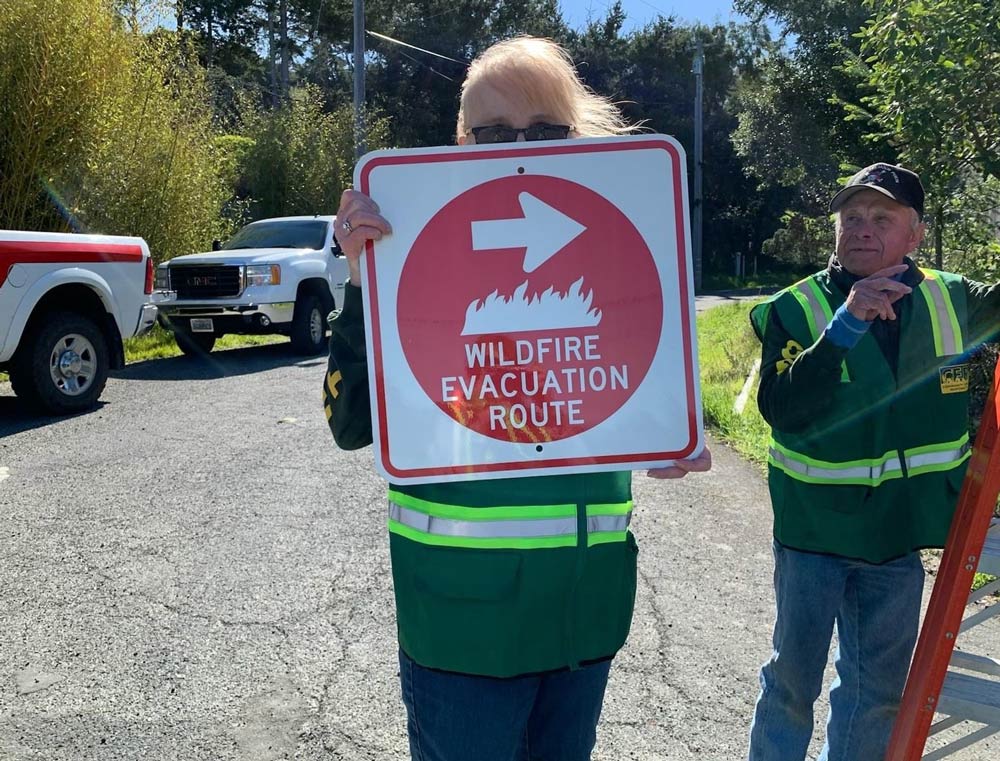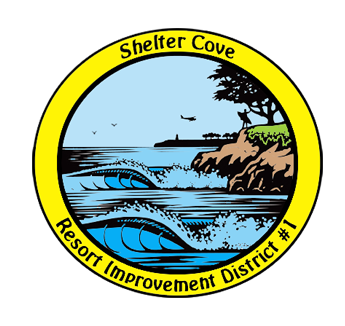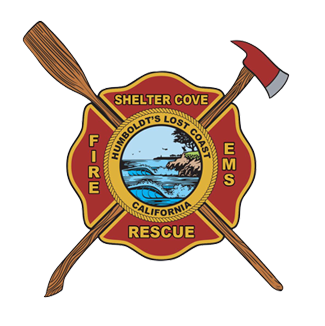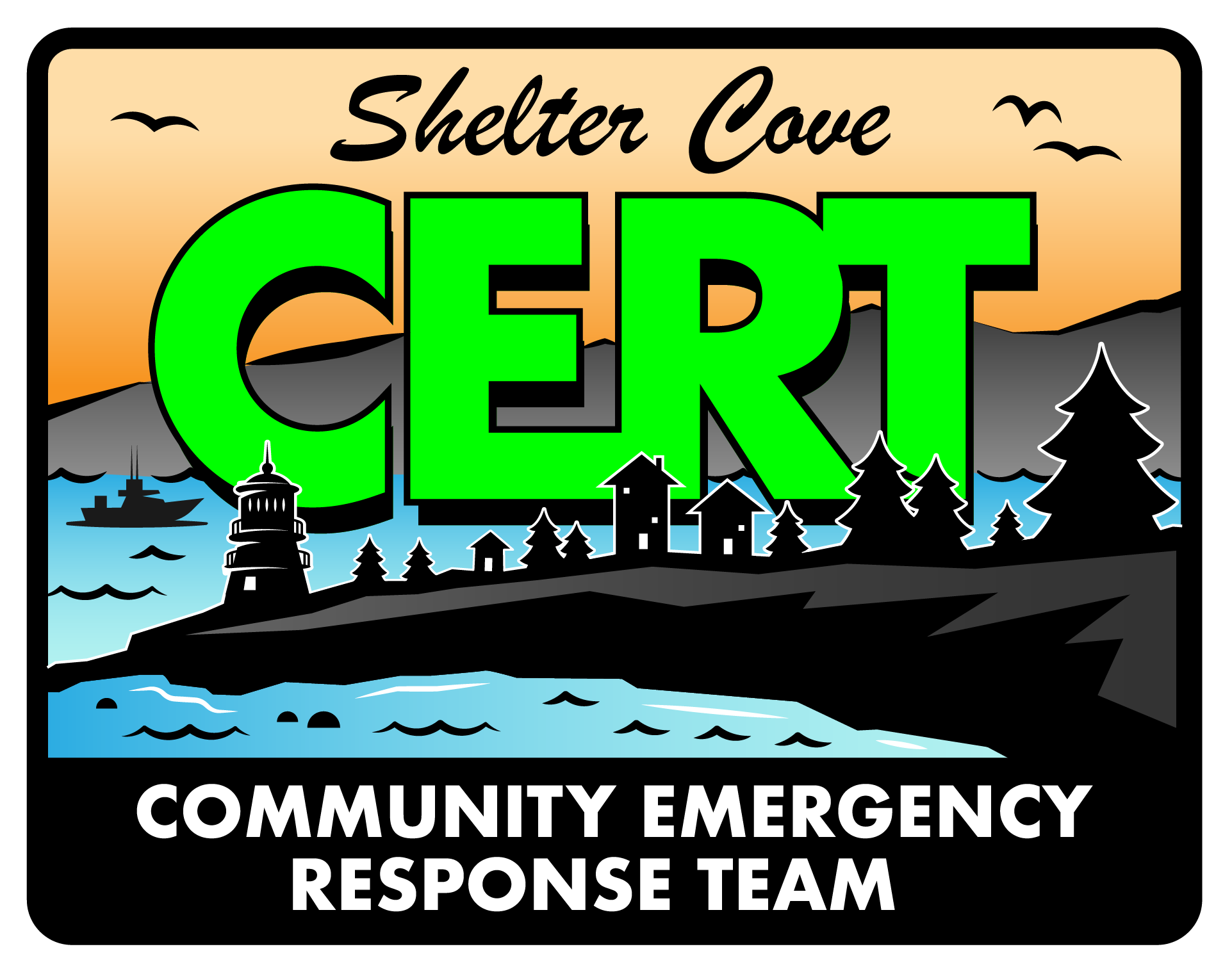
Emergencies can happen at anytime!
Is your family and property prepared for an emergency?
Join the Shelter Cove Community Emergency Response Team (CERT) TEAM!
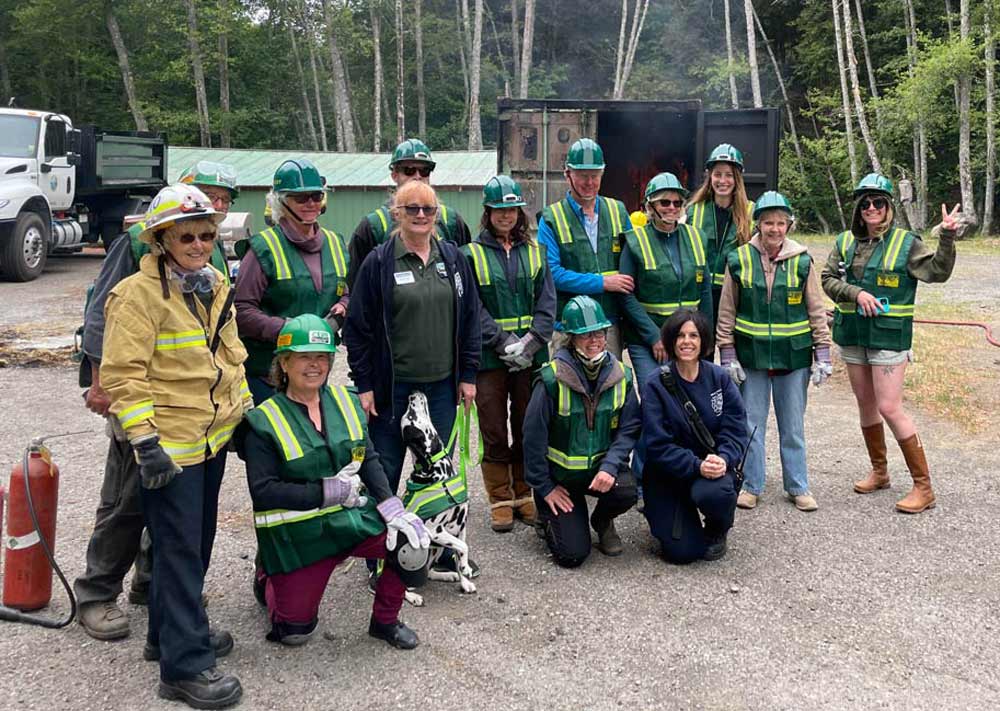
Want to help your family, friends, neighbors and Fire Department in times of need?
You can learn Disaster Preparedness, CERT Organization, First Aid/CPR, Disaster Psychology, Fire Safety, Light Search & Rescue and much more in the CERT Basic course. CERT members can set up Shelter Operations to help disaster victims, volunteer at the Community Pantry, assist the Fire Department by providing food and hydration during fire calls and serve as fire lookouts on the 4th of July.
- Started in 2006
- FEMA based curriculum started in LA
- Basic training is around 4 weekends
- Officially adopted by the RID #1 and the Fire Department in 2019
- Over 40 people trained, 31 on the Shelter Cove CERT roster
- Utilized on a regular basis as fire department reserves
